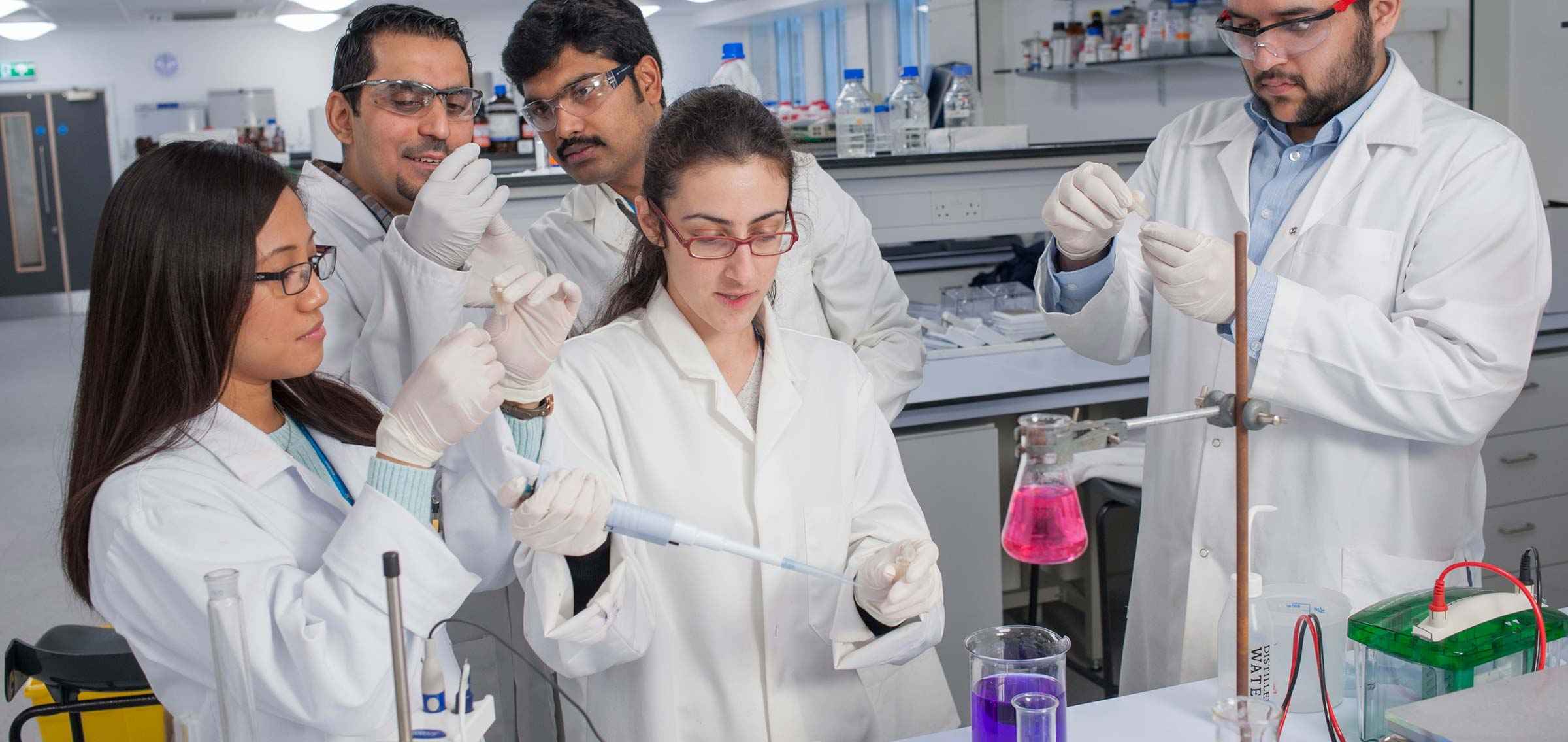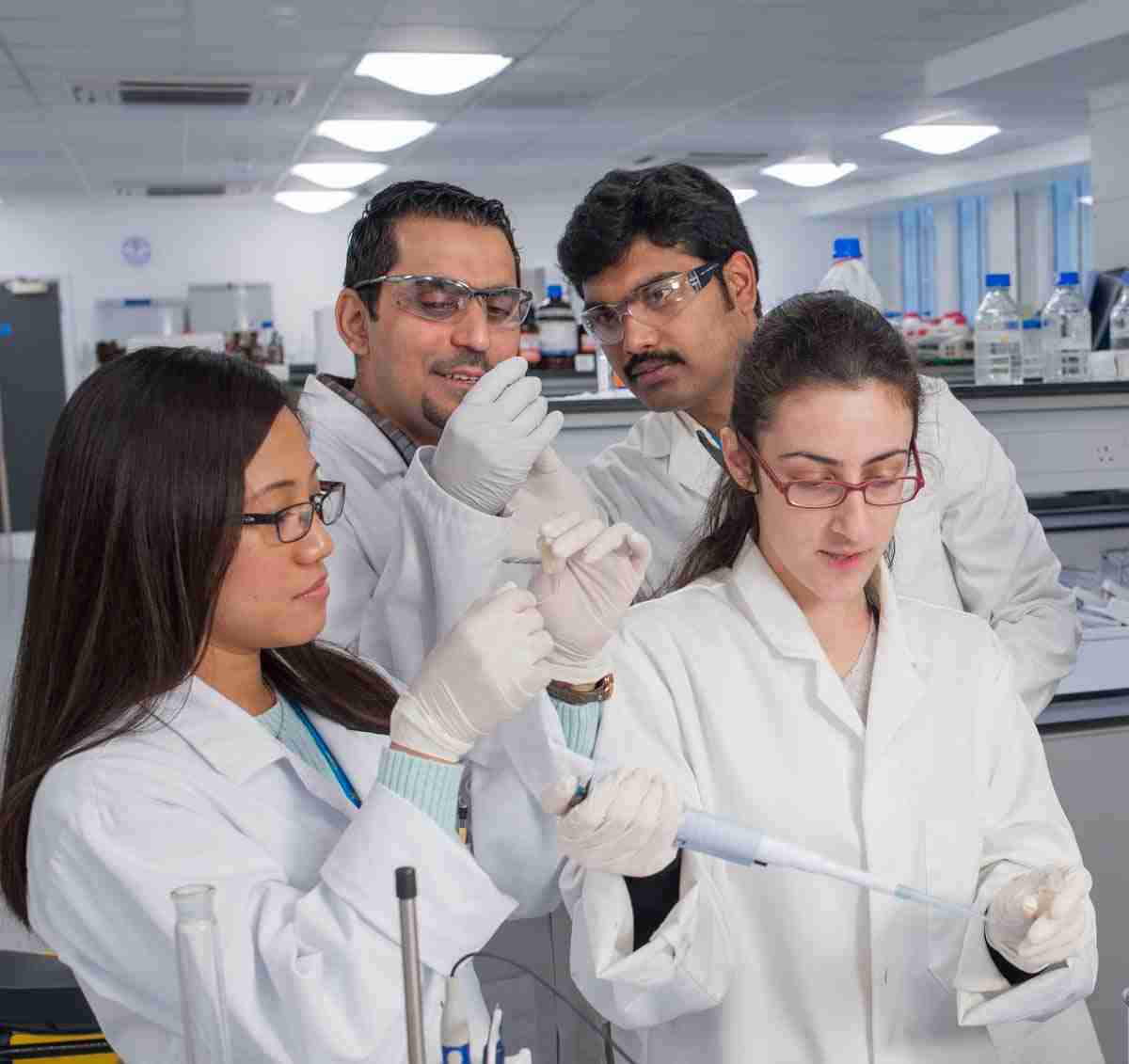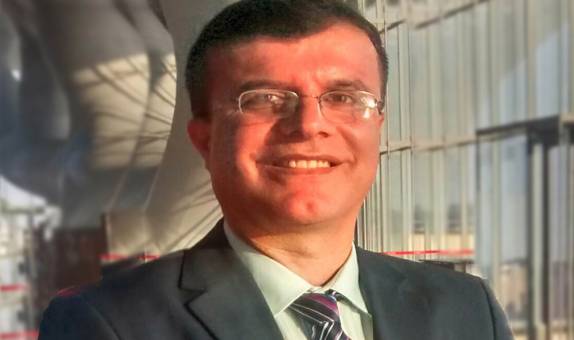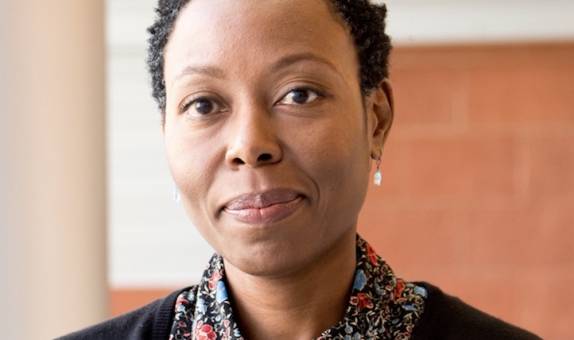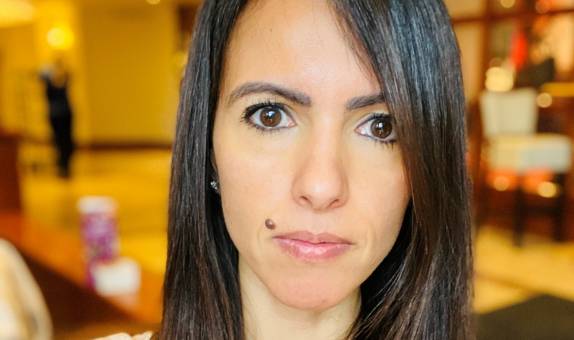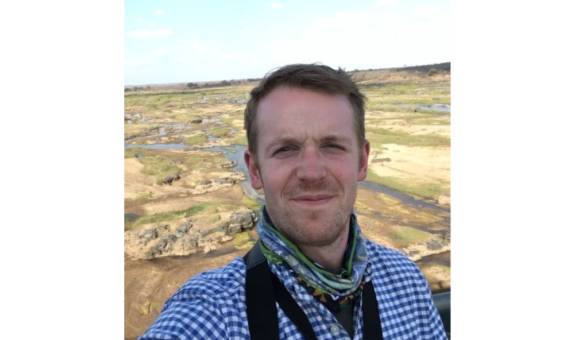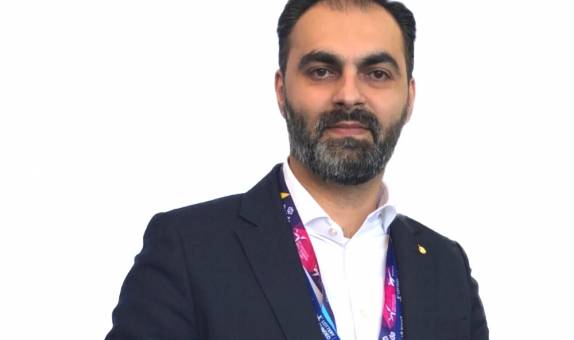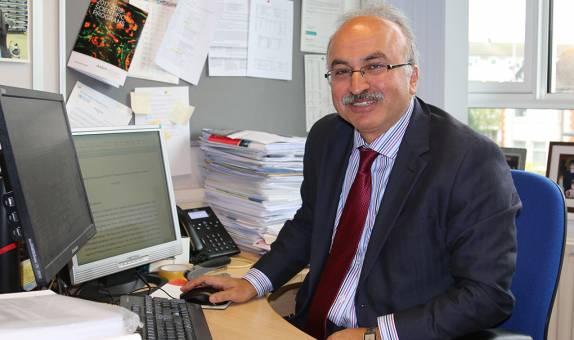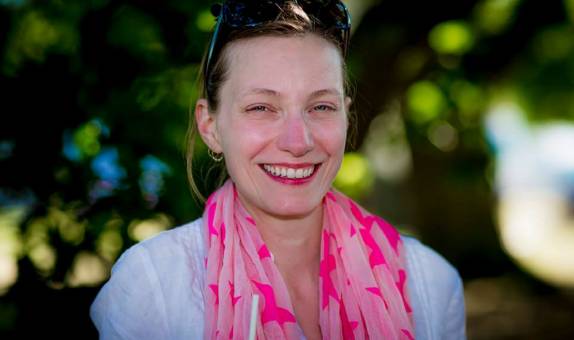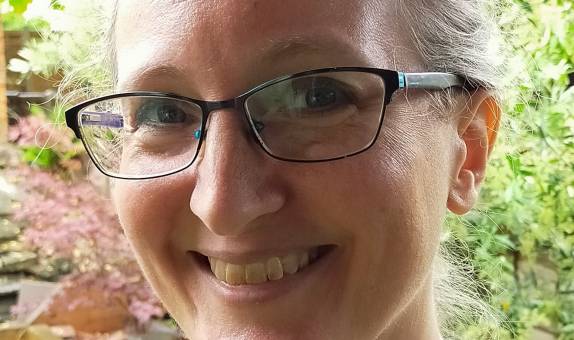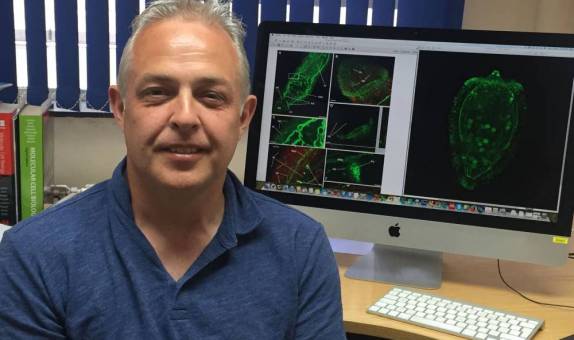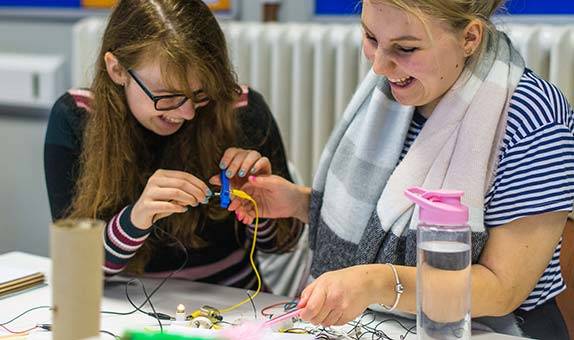Cancer Biology MSc
Why choose this course?
This Cancer Biology course provides you with an understanding of the disease processes involved in malignancy and the scientific rationale for therapeutic options.
You will be trained in scientific research methods and learn the techniques used in cell and molecular biology and pathology. You will study the biology of disease, tumour biology, immunology, molecular oncology, haematological malignancy, plus diagnostic and therapeutic techniques for cancer.
In addition to an understanding of the principles and practice of core topics in medical science, you will gain in-depth knowledge of oncology topics and their relationship to other medical disciplines.
Your research project can be carried out with one of our life science research groups or in your workplace if you study full time or part time. It can be an excellent selling point when seeking a job or promotion.
There are flexible and part time options available which can help you fit your studies around other commitments. Single modules may be taken as part of continuing professional development.
| Mode | Duration | Attendance | Start date |
|---|---|---|---|
| Full time | 1 year | 2 days a week |
September 2024 January 2025 |
| Full time | 2 years including professional placement | 2 days a week plus placement year |
September 2024 January 2025 |
| Part time | 2 years | 1 day a week |
September 2024 January 2025 |
| Main location | Penrhyn Road |
Reasons to choose Kingston University
- This course is accredited by the Institute of Biomedical Science.
- You will have the opportunity to work with companies such as GlaxoSmithKline or at a research institute, such as the Institute of Cancer Research, and in hospital laboratories.
- Through a cancer research project, you will study an area of interest in depth and gain valuable research skills, which will benefit your future career.
What you will study
You will be trained in science research methods and learn about the techniques used in molecular pathology and biology. It links your academic knowledge to practical application, particularly in relation to modern diagnostic methods. You will study the biology of disease, tumour biology, immunology, molecular oncology, haematological malignancy, plus diagnostic and therapeutic techniques for cancer.
In addition to developing a comprehensive understanding of the principles and practice of core topics in current areas of medical science, you will gain an in-depth knowledge of oncology topics and their relationship to other medical disciplines. You will also learn how to plan, carry out and report on a piece of independent scientific research.
For a student to go on placement they are required to pass every module first time with no reassessments. It is the responsibility of individual students to find a suitable paid placement. Students will be supported by our dedicated placement team in securing this opportunity.
Modules
Core modules
Research techniques and scientific communication
30 credits
The module enables students to develop and extend skills required to research and communicate in biosciences, and the principles and practice of laboratory techniques, research planning, management, data handling and presentation. The material is contextualised by lectures, practicals, workshops and directed reading around the planning and execution of experiments and interpretation of the data in a clinical setting or in clinically-based studies.
Cancer Diagnosis and Therapy
30 credits
This is a core module for students studying for the MSc in Cancer Biology. The module introduces you to the methodologies and clinical rationale of diagnosis and therapy for solid tumours and haematological malignancy. Topics covered include cancer epidemiology, risk factors and symptoms, imaging, biopsy and laboratory investigations, tumour markers (e.g. diagnostic, prognostic and predictive biomarkers), staging and prognosis of tumours and various therapeutic options including radiotherapy, chemotherapy, hormonal therapy and targeted therapy of cancer. The module is delivered through a variety of lectures, seminars, workshops, tutorials and practical laboratory sessions. Additional support materials will be provided on StudySpace highlighting the most recent advances on the diagnosis and treatment of human cancers.
Immunology and the Biology of Disease
30 credits
This module provides students with an introduction to the concepts of immunity and pathobiology. Students will become familiar with the different cells and organs of the immune system and how these function and interact to protect the body from infection. In addition, the module introduces students to the cellular mechanisms and genetic causes of disease considering both the physiological manifestations and the public health implications. The module also introduces some of the molecular processes and signalling events that are important in communication between cells of the immune system. It goes on to consider the role of cellular pathology in the context of other pathology disciplines such as clinical chemistry. Practical classes give students the opportunity to apply their basic knowledge of immunology to interpret the significance of laboratory data and the role of the immune system in disease.
Cellular and Molecular Biology of Cancer
30 credits
This module introduces biological interactions between tumour cells and the host and how these interactions affect tumour progression. The module is designed to provide a more detailed understanding of the hallmarks of cancer and the molecular processes and changes (ie genetic and epigenetic alterations) that underlie the generation of malignancies. Processes to be studied include carcinogenesis, angiogenesis and metastasis. Tumour responses to therapeutic approaches such as the development of drug resistance, as well as some of the mechanisms by which tumours may escape immune destruction, are also covered.
On successful completion of the module, you will be able to:
- Discuss the mechanisms by which cancers develop, grow and spread within the body.
- Demonstrate comprehension regarding the ways in which normal cell growth and differentiation is controlled.
- Discuss the complexity and interactions involved in the regulation of gene expression and to interpret the molecular consequences of gene deregulation.
- Evaluate the role of genetics in sporadic and familial human cancer.
- Expound on the mechanisms and consequences of acquired drug resistance in tumour cells.
- Understand some of the mechanisms by which tumours may evade immune recognition and destruction.
Research Project
60 credits
This Research project module is the final stage in the MSc qualification and represents 60 Level 7 credits. It is designed as a 'capstone' module, and gives students the opportunity to use and synthesise the knowledge and skills they have acquired from the other taught modules in applied "real-world learning". It involves presenting work in formats appropriate to wider professional audiences, practising new and/or improved laboratory skills, and most importantly demonstration of the ability to independently solve complex problems.
Professional Placement
120 credits
The Professional Placement module is a core module if you're following a masters programme that incorporates an extended professional placement. It provides you with the opportunity to apply your knowledge and skills in an appropriate working environment, and develops and enhances key employability and subject specific skills in your chosen discipline. You may wish to use the placement experience as a platform for a major project or your future career.
It is your responsibility to find and secure a suitable placement opportunity; this should not normally involve more than two placements which must be completed over a minimum period of 10 months and within a maximum of 12 months. The placement must be approved by your Course Leader prior to commencement to ensure its suitability. You will have access to the standard placement preparation activities offered by the Student Engagement and Enhancement (SEE) group.
Read more about the postgraduate work placement scheme.
Entry requirements
Work placement scheme
Many postgraduate courses at Kingston University allow students to take the option of a work placement year as part of their course.
You are responsible for finding and securing your own professional placement. This can be highly competitive but also incredibly rewarding. Our careers team can help support you with your CV/portfolio, provide skills workshops and give expert advice, as well as opportunities to attend employer networking events.
As the work placement is an assessed part of the course, it is covered by a student's Student Route visa.
Find out more about the postgraduate work placement scheme.
Teaching and assessment
Who teaches this course?
This course is delivered by the School of Life Sciences, Pharmacy and Chemistry.
The School of Life Sciences, Pharmacy and Chemistry offers an outstanding and diverse portfolio of undergraduate and postgraduate programmes in biological and biomedical sciences, chemistry, forensic science, pharmacy, pharmacological and pharmaceutical sciences, and sport science and nutrition.
We've invested heavily in the development of new facilities including laboratories for teaching and research to provide students with access to ultra-modern equipment in a wide range of teaching facilities.
Postgraduate students may run or assist in lab sessions and may also contribute to the teaching of seminars under the supervision of the module leader.
What our students say
Facilities
Cancer Biology MSc students have access to a range of laboratory facilities at our Penrhyn Road campus, where this course is based. These include tissue culture laboratories, histology laboratory, molecular biology laboratories and cell biology laboratories. In addition to the subject specific laboratories, students also have the opportunity to use faculty-based laboratories, including analytical chemistry facilities and instrumentation, computing and data analysis resources.
Specialist equipment includes:
- RT-PCR and DNA manipulation facilities
- state-of-the-art image analysis, including scanning electron and confocal microscopy equipment
- specialist histology and equipment
- staining and protein analysis equipment
Being part of a large, broad-based University means students will also get the chance to use facilities from other faculties. Links with industry and research institutes afford further opportunities to become familiar with specialist equipment.
Access to this type of highly specialised scientific equipment ensures that students get practical, hands-on-experience of current research techniques, which equips them for further study or for work in cancer-related fields. All of the facilities are supported by dedicated technicians and experienced staff.
In addition, the Learning Resource Centre offers:
- subject libraries, plus a free inter-library loan scheme to other libraries in the Greater London area
- online database subscriptions
- a growing selection of resource materials
Course fees and funding
Additional costs
Depending on the programme of study, there may be extra costs that are not covered by tuition fees which students will need to consider when planning their studies. Tuition fees cover the cost of your teaching, assessment and operating University facilities such as the library, access to shared IT equipment and other support services. Accommodation and living costs are not included in our fees.
Where a course has additional expenses, we make every effort to highlight them. These may include optional field trips, materials (e.g. art, design, engineering), security checks such as DBS, uniforms, specialist clothing or professional memberships.
After you graduate
Graduates have gone on to roles in a wide variety of careers in medicine, hospital laboratories, commercial laboratories and cancer research.
Current research in this subject
Many of our staff are research active. This ensures they are in touch with the latest thinking and bring best practice to your studies.
Science research is organised into several research areas. The Biomedical and Pharmaceutical Sciences Research Group is an interdisciplinary group.
Research focuses on the interaction of chemistry and life sciences with medicine. It is divided into three main sub-areas;
- Therapy – including immunology, stem cell research and allergenic effects of foods;
- Parasitology – including parasite transmission, drug responses and host cellular immune responses; and
- Pharmaceutical Sciences – including the use and understanding of free-radical reactions and the use of anti-cancer drugs/new bioactive natural products.
Get professional experience alongside your studies
We work with a variety of employers such as hospitals, community health care, NHS foundation trusts, academic publishers, and pharmaceutical companies, many of which also offer professional experience opportunities for our Cancer Biology MSc students.
Benefits of professional experience
- Get work experience in a scientific environment – making you more employable
- Work on a project of benefit to the employer
- Develop transferable skills and enhance your CV
- Make professional contacts
- Receive a work reference at the end of a successful placement
What's on offer
- Part-time, unpaid and either office or laboratory-based
- Flexible to fit in with your studies and the employer's needs
- An academic supervisor allocated to all placement students
- Should encompass 200 hours of work during the period October to April alongside studies
Professional experience could include
- Conducting discrete pieces of research, investigation, and fact finding
- Supporting laboratory work such as ensuring that Material Safety Data Sheets (MSDS) are available for all lab materials
- Assessing, archiving, sorting, transcribing, and filing scientific documents and files
- Taking minutes in meetings involving scientific content
How to get professional experience
Competition to gain professional experience is fierce and places are not guaranteed. During Induction Week, you will be introduced to the scheme and the Kingston University Careers and Employability Centre resources where you will find a CV and covering letter template.
All applications must use these CV and covering letter templates, which are accessed via your KU account. Therefore, to apply for the Professional Experience opportunities, you must first be a student enrolled on an eligible MSc programme.
The KU Careers and Employability Centre will help you to complete your CV and covering letter, so that you can make your best application for the scheme. CVs and covering letters are reviewed by employers and students chosen for interview are supported to prepare by the Careers and Employability Centre.
Please email Lori Snyder for any general information you need about the professional experience scheme.
Course changes and regulations
The information on this page reflects the currently intended course structure and module details. To improve your student experience and the quality of your degree, we may review and change the material information of this course. Course changes explained.
Programme Specifications for the course are published ahead of each academic year.
Regulations governing this course can be found on our website.
